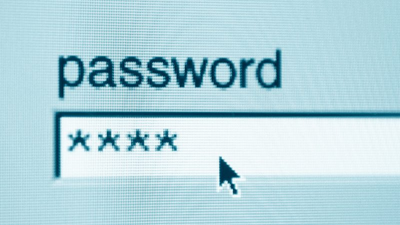
A Never-Ending List: The Annoyance of Keeping Track of Multiple Passwords
In today's digital age, it's not uncommon to have a multitude of passwords to remember. From banking and email accounts to social media and even smart home devices, the list seems endless. While easily remembered passwords might be convenient, they can also be a security risk if you're using them for multiple sensitive accounts.
A recent study by NordPass revealed that many people are using the same easy-to-remember passwords across various platforms, making it a security vulnerability waiting to happen.
The Top 200 Most Common Passwords: A Scary Reality
NordPass' sixth annual Top 200 Most Common Passwords list is a telling indicator of the widespread problem. The company analyzed a massive 2.5 terabyte database from publicly available resources, including those on the dark web, to determine the most commonly used passwords.
- Here are the top 15 most common passwords:
- "123456"
- "password123"
- "football" (59,656 instances)
- "princess"
- "computer"
- "f-ckyou" (over 50,000 instances)
It's essential to take a closer look at the most common passwords and understand why they're so easily guessable. Using easy-to-guess words or phrases can put your sensitive information at risk.
The Dangers of Easily Guessable Passwords
Easily guessable passwords, like those listed above, are a significant security risk. Hackers and cyber attackers often rely on exploiting easily guessed passwords to gain unauthorized access to accounts. By using such passwords, you're essentially giving them an open door to your sensitive information.
In addition to the most common passwords, NordPass also highlighted other easily guessable words and phrases that should be avoided when creating new passwords.
Best Practices for Creating Secure Passwords
NordPass recommends several strategies for creating more secure passwords:
- Make your passwords at least 20 characters long and feature a mix of upper and lowercase letters, numbers, and symbols.
- Avoid using common words or easily guessable personal information about yourself.
- Consider using passkeys, which allow users to log in to their accounts using other verification means, like a fingerprint or face scan, or via your mobile phone with a PIN.
Implementing these best practices can significantly enhance the security of your online presence and protect you from potential cyber threats.
Conclusion
In conclusion, the sheer amount of passwords we need to remember can be overwhelming. However, it's crucial to prioritize password security by avoiding easily guessable words or phrases and using best practices when creating new passwords. By doing so, you'll significantly reduce the risk of falling victim to cyber attacks and protect your sensitive information.